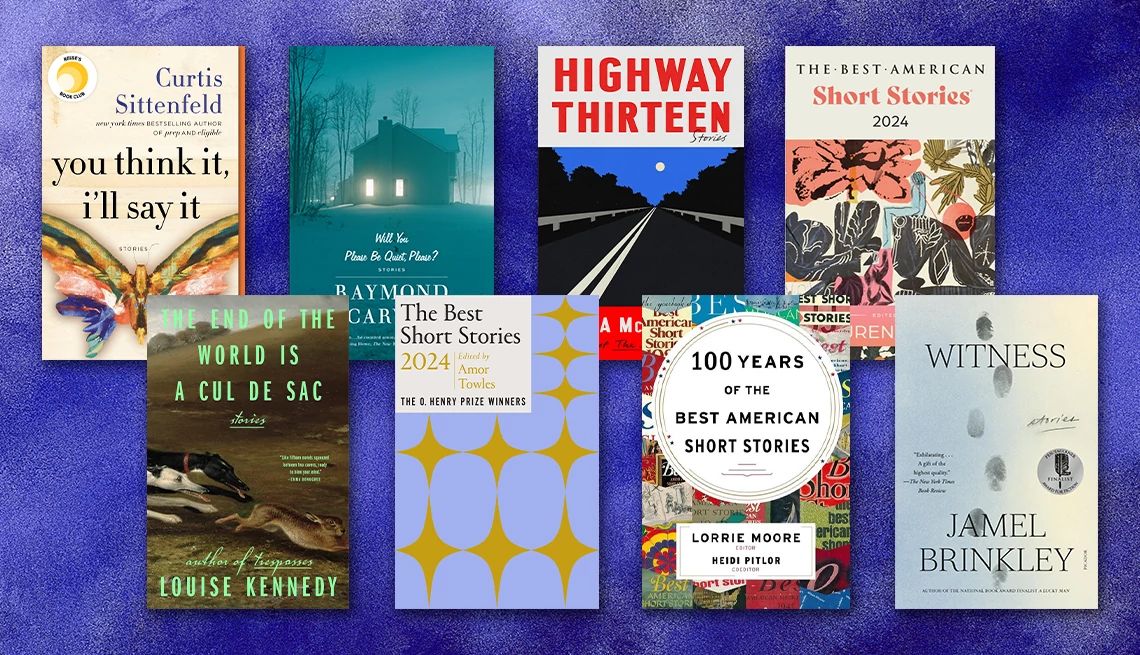AARP Hearing Center


Sometimes you don’t get a chance to plow through a whole novel before your book club gathers to discuss it — or maybe you’ve read it cover to cover, but half the group hasn’t gone past the first chapter. Life gets busy. Why not consider a great short story instead?
The short story “offers a complete experience in one sitting,” says Deborah Treisman, the fiction editor at The New Yorker, who selects a story for every issue. “You can sit down and have a full experience in half an hour, an hour, and walk away thinking about it. The investment is lower on your part, and the payoff is higher per minute.”
Your group might choose a fantastic collection — we’ve highlighted some wonderful ones below — and opt to read the whole book or settle on just one story. “Like a song on an album, if you don’t like one of the short stories, you can just skip it,” says best-selling author Lauren Groff (Matrix, The Vaster Wilds and the brilliant 2015 novel Fates and Furies), who guest-edited The Best American Short Stories 2024, described below, and last year opened The Lynx bookstore in Gainesville, Florida. “Play around and have fun with it. Read for joy; if you read for joy, you won’t be disappointed.”
Here are some collections to consider (we note where some individual stories can be found for free online):
The Best American Short Stories 2024, edited by Lauren Groff and Heidi Pitlor
Pitlor says this collection offers readers a wide selection of new writers to try, and she points to Suzanne Wang, author of “Mall of America.” “It’s about a grandfather who gets locked in a mall,” Pitlor says. “It’s incredibly moving.” And on the lighter side, Pitlor likes Katherine Damm’s “The Happiest Day of Your Life,” a humorous tale centered on a wedding with dead-on details like a cutesy chalkboard announcing signature bride-and-groom cocktails, predictable first-dance selections, and a well-told tale of a wedding guest’s marriage narrated through his escalating drunkenness and correspondingly overly friendly choice of dance partners. “It’s a funny one,” she says.
You Think It, I’ll Say It, by Curtis Sittenfeld (2018)
From her breakout first novel Prep (2005) onward, Curtis Sittenfeld’s privileged oddballs have sweated through various modern dilemmas. The acting out continues in this best-selling collection, which was a Reese’s Book Club pick. In “The Prairie Wife,” Kirsten, a married lesbian, cyberstalks a former lover who has blown up as an internet lifestyle guru married to a man. Then there’s the posh Dallas couple in “The World Has Many Butterflies”; they are married to other people but play a cruel, flirty, made-up game of “You Think, I’ll Say It” privately eviscerating their peers when they meet at country club parties and private school fundraisers. Also, consider Sittenfeld’s superb new collection, Show Don’t Tell (Feb. 25), which includes many stories featuring beautifully drawn middle-aged characters struggling with very human insecurities, disappointments and conflicts with friends or lovers. In “Lost but Not Forgotten,” Lee Fiora, the older, mellower protagonist of Prep, returns to campus for her 30th reunion.




































































You Might Also Like
How to Start a Book Club
Whether you’re looking to read more or simply be in good company, here’s our guide to making it a success
TV Food Star Alton Brown, 62: ‘There’s No Such Thing As a Natural Bad Cook’
The dynamic science-nerd chef chats about his new book ‘Food for Thought,’ what makes a good cook and eating weird things as a kid
Can Your Thoughts Change the Trajectory of Your Life?
She saw manifestation as just another self-improvement tactic — and then the coincidences started stacking up